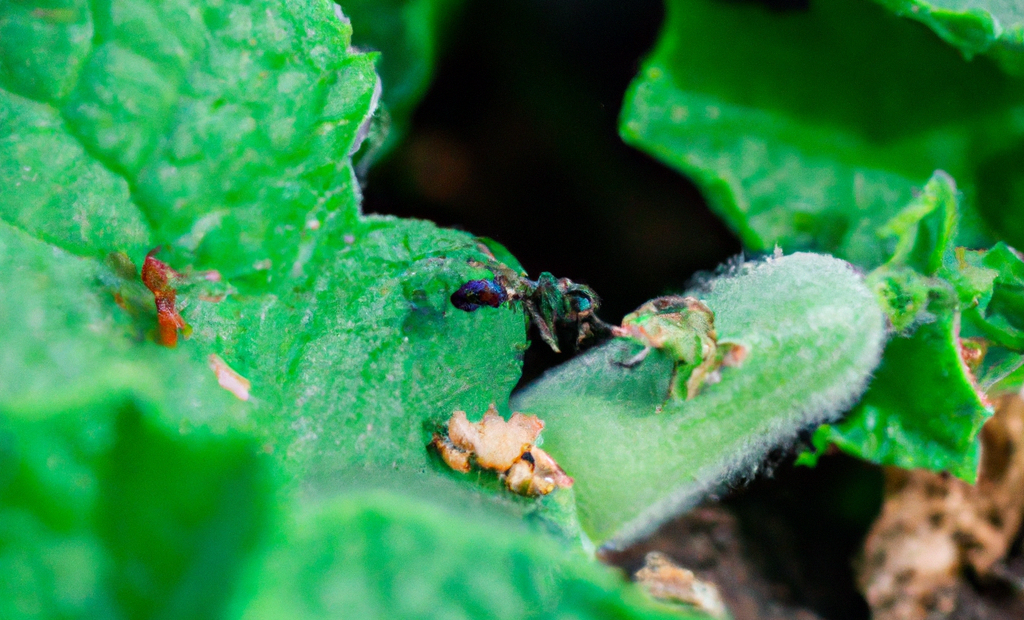The sections of the article highlight the importance of biofertilizers and auxiliary fauna in organic farming. Biofertilizers offer a sustainable alternative to chemical fertilizers, promoting healthy soil, biodiversity and natural pest control. In addition, it is emphasized that these agricultural products, derived from organic matter and plant residues, are essential to maintain ecosystem balance and improve crop productivity in the long term.
In today’s agriculture, where sustainability and efficiency are crucial, auxiliary fauna plays a vital role in maintaining and improving crop health. This article will address various strategies to promote auxiliary fauna in crops, with a particular focus on the use of fertilizers and agricultural products. In the first instance, we will explore the use of biofertilizers as an effective tool to attract and promote auxiliary fauna in the context of organic farming. Next, we will analyze how agricultural products can improve auxiliary fauna in crops and present effective strategies for the use of fertilizers in this task. Finally, the importance of auxiliary fauna in organic farming will be highlighted and the role played by fertilizers in this context will be discussed. Throughout this article, intensive use will be made of SEO keywords such as fertilizers, organic farming, biofertilizers and agricultural products, to provide a comprehensive and accessible analysis on this topic of increasing relevance.
- 1. "Use of Biofertilizers to Attract and Promote Auxiliary Fauna in Organic Farming"
- 2. "How Agricultural Products Can Improve Auxiliary Fauna in Crops"
- 3. "Effective Strategies for the Use of Fertilizers in the Promotion of Auxiliary Fauna"
- 4. "The Importance of Auxiliary Fauna in Organic Agriculture and the Role of Fertilizers."
1. "Use of Biofertilizers to Attract and Promote Auxiliary Fauna in Organic Farming"
The use of biofertilizers in organic farming has proven to be an effective strategy to attract and promote auxiliary fauna in crops. Biofertilizers are agricultural products that stand out for being an ecological alternative to conventional chemical fertilizers. These natural inputs nourish the soil, improve its structure and promote biological activity, creating an environment conducive to beneficial fauna. The presence of this auxiliary fauna is essential in organic farming, as they contribute to the natural regulation of pests, the decomposition of organic matter and the promotion of biodiversity. Therefore, the use of biofertilizers not only respects the health of the soil and the environment, but also promotes a biological and sustainable balance in crops.
2. "How Agricultural Products Can Improve Auxiliary Fauna in Crops"
Using agricultural products, especially those that align with organic farming principles, can play a vital role in improving the life support of crops. Biofertilizers, for example, are an excellent alternative to conventional chemical fertilizers due to their gentler and more environmentally friendly nature. These agricultural products not only nourish the soil, but also encourage biodiversity, encouraging beneficial organisms to thrive. Biofertilizers can attract pollinating insects, earthworms, and other helpful creatures that help maintain soil health and protect plants against pests. By adopting these organic farming methods and using fertilizers that promote soil life, farmers can improve the life support of their crops, while increasing their productivity and sustainability.
3. "Effective Strategies for the Use of Fertilizers in the Promotion of Auxiliary Fauna"
Implementing effective strategies for using fertilizers to promote beneficial fauna is essential in modern agriculture. In an attempt to adopt organic farming, many farmers have started using biofertilizers, which are substances containing living microorganisms that, when applied to plants, soils or substrates, promote biodiversity and improve soil health. The use of biofertilizers and agricultural products not only improves soil quality, but also promotes the presence of beneficial fauna, such as beneficial insects and birds, which play an important role in natural pest control. These sustainable agricultural practices increase crop productivity in the long term and preserve ecosystem health.
4. "The Importance of Auxiliary Fauna in Organic Agriculture and the Role of Fertilizers."
Auxiliary fauna plays a crucial role in organic farming, as it contributes to maintaining the balance of the ecosystem and preventing pests. Within the framework of environmentally friendly agriculture, the use of fertilizers and agricultural products must comply with criteria of sustainability and biodiversity. In this sense, biofertilizers are presented as a viable alternative, since in addition to nourishing the soil, they promote the presence and activity of auxiliary fauna. This type of fertilizer, obtained from organic matter and plant waste, promotes soil health and, therefore, that of crops, while respecting and enhancing the life of the beneficial organisms that inhabit it. In short, auxiliary fauna and the use of fertilizers and products for organic agriculture are key pieces in the puzzle of sustainable and productive agriculture.
Promoting crop auxiliary fauna is an essential strategy for organic farming, which greatly benefits from biodiversity and biological synergy. Strategies that include the use of biofertilizers and agricultural products offer an effective and environmentally friendly solution to improve crop health and productivity. These methods not only attract and promote auxiliary fauna, but also improve soil quality and reduce dependence on chemical inputs. Ultimately, for sustainable and productive organic farming, it is essential to adopt strategies that promote crop auxiliary fauna using appropriate fertilizers and environmentally friendly agricultural products.


